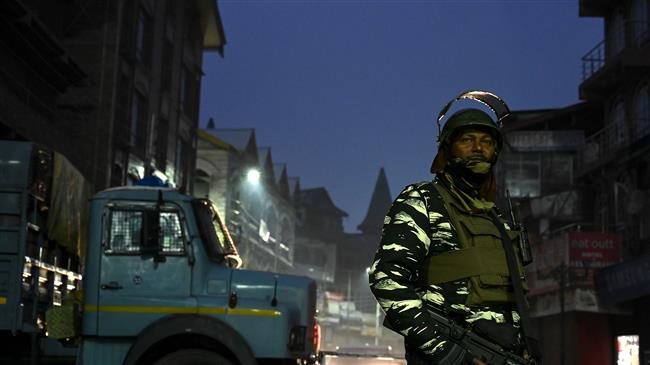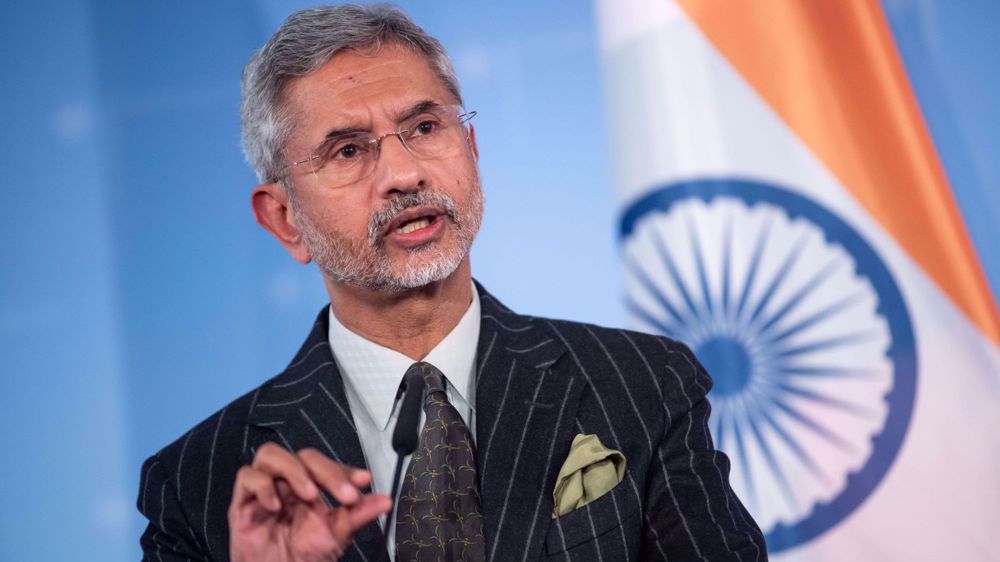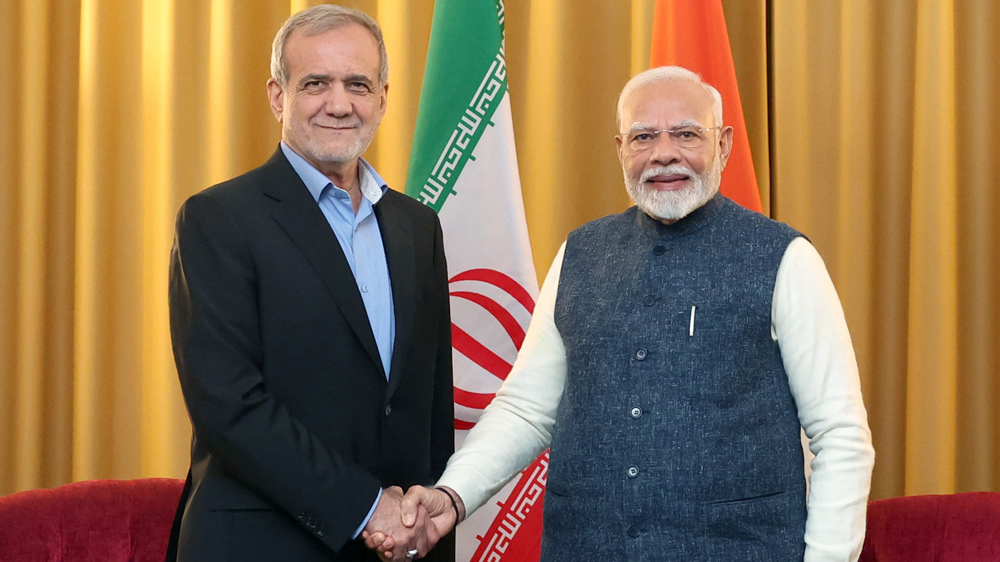India formally divides Kashmir to tighten grip over Muslim-majority region
India has formally divided the Muslim-majority region of Kashmir into two new federally-administered territories, aiming to tighten its grip on the restive Himalayan valley.
Under the new arrangement, the state was formally taken on Thursday under direct federal control and split into the territories of Jammu and Kashmir, and Ladakh, which borders China.
Speaking in his home state of Gujarat, Prime Minister Narendra Modi hailed what he called a "bright future" for the blood-soaked Himalayan region.
Kashmir was "the only place where terrorism killed around 40,000 people in the last three decades. So many mothers lost their sons... For how long could have just kept watching the innocents die?" Modi said.
"We are happy that Jammu and Kashmir and Ladakh are moving towards a new future from today onwards. Ladakh and Jammu and Kashmir today are taking steps for their bright future," he added.
Amid tight security, low-key ceremonies were held in Srinagar and Leh -- the region’s main cities -- to have two new lieutenant governors sworn into office.

The move also removes Kashmiris' exclusive land rights, allowing people from elsewhere to buy property. Locals suspect that this is part of Modi's aim to bring demographic change to the region.
Local authorities in Kashmir deployed tens of thousands of government forces and issued a high alert for attacks and anti-India protests.
Paramilitary troops and police in bulletproof gear patrolled the streets in the densely-populated old quarters of the main city of Srinagar and other towns across the volatile region.
On August 5, India scrapped the semi-autonomy of its part of Kashmir, sparking a new wave of tensions over the region.
In the lead-up to the move, India sent thousands of additional troops to the disputed region, imposed a crippling curfew, shut down telecommunications and the internet, and arrested political leaders.

Almost three months after the surprise move, hundreds of Kashmiri politicians and others remain in detention, mostly without charge.
In total, several thousand people were locked up, including children as young as nine, but most of them were subsequently released.
There have also been allegations of torture by Indian troops, something the government denies.
Access to around half of mobile phones was only restored on October 14, but the internet remains cut for the valley's more than seven million people.
On Tuesday, the UN High Commission for Human Rights in Geneva said it was "extremely concerned" about the situation.
"We urge the Indian authorities to unlock the situation and fully restore the rights that are currently being denied," it said.
The August 5 controversial action angered Pakistan, which controls parts of Kashmir and soured Pakistan-India relations.
China also holds a thinly-populated, high-altitude area of Kashmir and has a longstanding dispute over the border with India.
In August 1947, the British Raj was dismantled with the subcontinent divided into two independent states, Hindu-majority India and Muslim-majority Pakistan.
Kashmir has been split between India and Pakistan since their partition in 1947. Both countries claim all of Kashmir and have fought three wars over the territory.
Millions were uprooted in one of the largest mass migrations in history, with experts estimating at least one million died in the communal violence unleashed by partition that continues to haunt the subcontinent to this day.
VIDEO | Yemenis praise the military for its successful operations against Israel
VIDEO | Israel continues to bomb Gaza homes
VIDEO | An insider's view of the country: Meybod City in Yazd
‘All wars have rules. All of those rules have been broken’ by Israel
VIDEO | Report flags India’s violation of rights of Rohingya detainees
Turkey's foreign minister meets Syria's de facto leader in Damascus
VIDEO | US Syria plots
'Next to impossible' to rescue patients from Gaza's Kamal Adwan Hospital: Director











 This makes it easy to access the Press TV website
This makes it easy to access the Press TV website